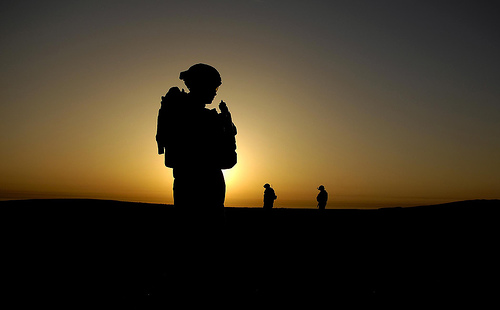The Neo-Colonialists

John Nagl is one of the more hard-headed proponents of "smart power" out there, so it's well worth reading his "The Expeditionary Imperative" in the Wilson Quarterly.
While the piece makes a lot of sense, I'm troubled by the conclusion:
Victory in this long struggle requires changes in the governments and educational systems of dozens of countries around the globe. This is the task of a new generation of information warriors, development experts, and diplomats; it is every bit as important as the fight being waged by our men and women in uniform, but nowhere near as well recognized or funded.
There is a growing body of commentary that suggests that the answer to terrorism is a form of neo-colonialism that injects the United States into every troubled country on the theory that we can - and will - successfully manage to reform them. This reformation, in turn, will reduce the threat of Islamic terrorism around the globe.
Like the theory of "democratic transformation" that provided much of the intellectual impetus behind the Iraq war, there's very little empirical evidence that this is indeed the answer. Shouldn't we have learned by now to be wary of sweeping claims of societal transformation, even if the instruments of said transformation are dollars and not bullets?
Secondly, the most obvious objection to the neo-colonial view is that the Federal Government does not have a mandate for global social work. With a national debt poised to soar over $2 trillion, we have not exactly demonstrated a capacity to successfully manage our own affairs. Just consider how hard it is for Americans (lobbyists, unions, politicians, etc.) to reform the U.S. education system. Now, throw in a culture they don't understand and a language they don't speak and explain to me how the U.S. reforms the education system in dozens of countries.
But more to the point, Nagl and his peers routinely ignore several fairly troubling facts about terrorism. The first is that many jihadists hail from Europe. None of the supposed ills of the world - illiberal educations, poverty, tribalism, autocracy, etc. - can account for Western citizens turning toward radical Islam. Nor can they account for men like bin Laden or Khalid Sheikh Mohammed. Yes, Europe does not provide the kind of safe havens that a failed state would afford. But a few enterprising youths could certainly devise a way to kill dozens, if not hundreds, of people without access to the Hindu Kush.
Finally, the political dimension of radical Islam's global insurgency is a reaction against Western interference in Islamic societies. "Interfering better," as proponents such as Nagl propose, doesn't change that basic dynamic.
None of this counsels against a rebalancing of America's national security investment. But it should be undertaken with a sufficient dose of humility and an awareness that even when we use all of the "tools" at our disposal, the world is not mere clay in our hands.
U.S. Army Spc. Justin Towe scans his area while on a mission with Iraqi army soldiers from 1st Battalion, 2nd Brigade, 4th Iraqi Army Division in Al Muradia village, Iraq, March, 13, 2007. Towe is assigned to 4th Platoon, Delta Company, 2nd Battalion, 27th Infantry Regiment, 3rd Brigade Combat Team, 25th Infantry Division, Schofield Barracks, Hawaii. (U.S. Air Force photo by Master Sgt. Andy Dunaway) www.army.mil



